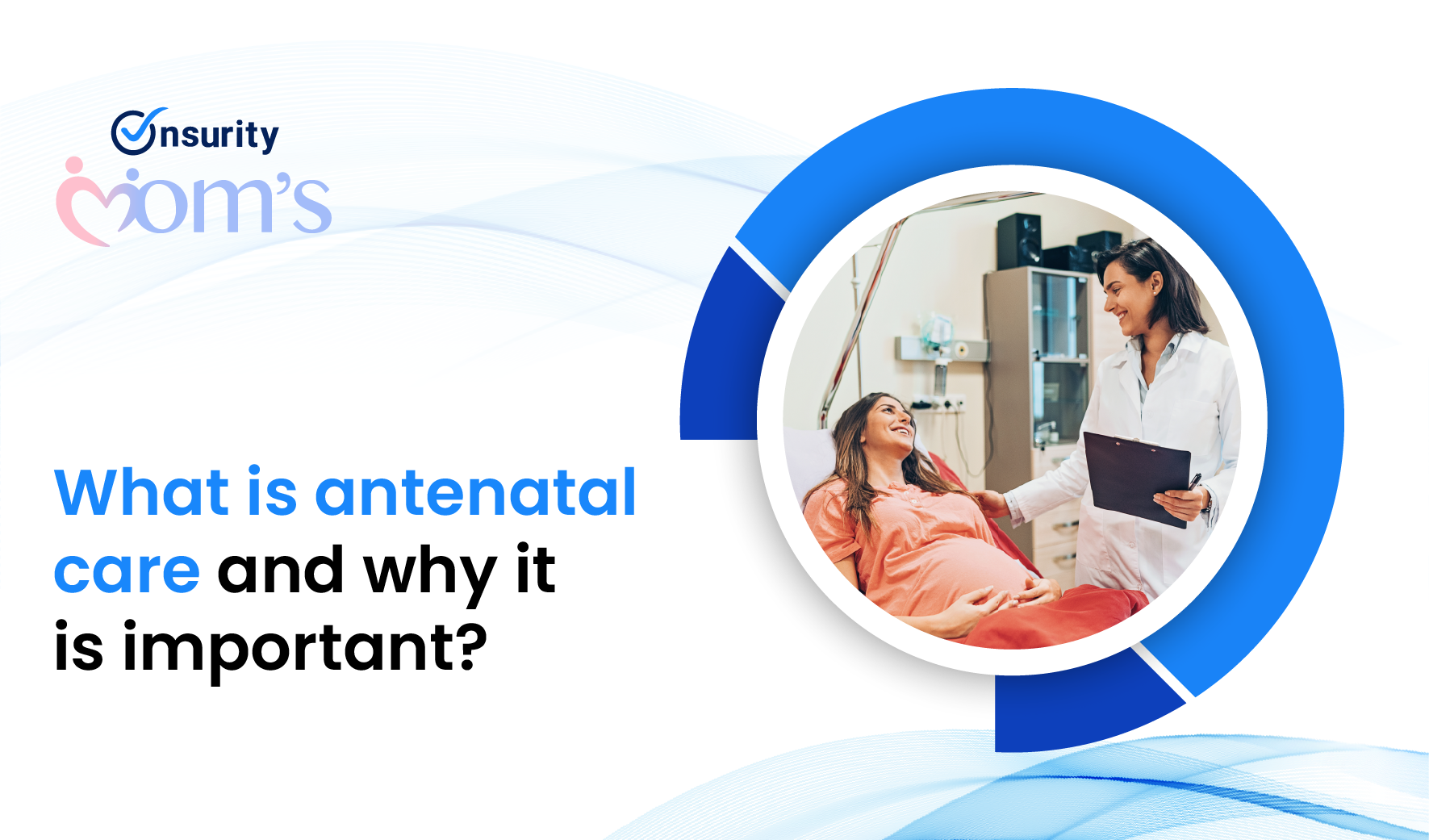Table of Contents
When the pregnancy is confirmed, there is much anticipation for the baby’s arrival. As a soon-to-be parent, you certainly look forward to having a healthy baby. However, from the time the pregnancy is confirmed to the time the baby arrives, the time is crucial for a woman. Ensuring good antenatal care, also known as prenatal care, is imperative to ensure a healthy and happy pregnancy and delivery. Read on to know all about antenatal care and how you can prepare for labour.
What is antenatal care?
Antenatal care, also known as prenatal care, is a form of healthcare support you need to reduce the risk of stillbirth, miscarriage or other pregnancy complications; it involves a series of medical checkups, lifestyle changes, medications, etc.
The doctor you are consulting will usually do the following as a part of your antenatal care:
- Check for your and the baby’s health and wellbeing
- Check for any health-related concerns and recommend care accordingly
- Provide any special medical treatment to you if required
- Help you plan for the baby’s birth
- Provide you with tips on how to take care of your health so that it has a positive impact on the baby
- Prenatal screening and diagnosis
Doing the above has helped many couples reduce the possibility of miscarriage, low birth weight, neonatal infections, maternal death, etc.
Antenatal\Prenatal care visits
Prenatal care visits include:
- Monthly visit to the doctor during the first two trimesters i.e. from weeks 1-28
- Fortnightly visit to the doctor from the 28th week to the 36th week of the pregnancy
- A weekly visit to the doctor from the 36th week of the pregnancy
WHO Recommendations on Antenatal care
To offer women with a positive pregnancy experience, WHO has laid down several new guidelines.
As per reports, in 2015, an estimated 303 000 women died from pregnancy-related causes, 2.7 million babies died during the first 28 days of life and 2.6 million babies were stillborn.
Globally, however, only 64% of women receive antenatal care four or more times throughout their pregnancy.
With the new guidelines, the doctor’s visits have been increased from 4 to 8. The increased number of visits can reduce perinatal deaths by up to 8% per 1000 births in comparison to 4 visits.
The guidelines also recommend that the pregnant woman should contact her healthcare provider within 12 weeks of gestation and subsequent contacts at 20, 26, 30, 34, 38 and 40 weeks.
During the antenatal visit, the healthcare provider should ask pregnant women about the use of alcohol and other substances.
Eight or more contacts for antenatal care can reduce perinatal deaths by up to 8 per 1000 births when compared to 4 visits.
Physical and mental wellness as a part of prenatal care
Why is doing physical activities during pregnancy good for you?
Doing various physical activities during pregnancy is good for you in the following ways:
- Helps gain the right amount of weight during pregnancy
- Keeps your mind, and body healthy, providing you with the extra energy that you need
- It helps ease discomfort such as back pain, swelling, constipation, etc.
- Manage stress and sleep better
- Reduce pregnancy complications such as gestational diabetes and preeclampsia
- Reduces the risk of caesarean birth
- Prepares your body for labour and childbirth
What physical activities should you do when pregnant?
Staying physically active during pregnancy is a must as it offers you the above benefits while also helping you stay fit mentally.
Here are a few activities to do when pregnant:
- Walking
- Swimming and water workouts
- Yoga and Pilates
- Low-impact aerobic exercises
- Strength training
Taking good care of your mental health during pregnancy
Women experiencing first-time pregnancy or unplanned pregnancy can go through a lot of emotions which can be mentally draining. Depression and anxiety during pregnancy are common. Apart from this, pregnant women can also experience panic attacks, eating disorders, bipolar disorder, and obsessive-compulsive disorder.
How to manage mental well-being during pregnancy?
To ensure you can manage your mental well-being and health effects, do the following:
- Don’t bring about any major changes at this stage including job changes, or house hunting, unless really required
- Eat well and sleep well
- Do a lot of breathing and physical exercises
- Spend time with people who make you feel good about yourself
- Avoid consuming alcohol and drugs
- Don’t over-expect too much from yourself. Be realistic about what you can do and what you cannot.
- Talk to other expecting parents
Dont’s to follow when experiencing low mental health
- Don’t compare yourself with other pregnant women
- Don’t be afraid to tell your healthcare professionals about how you feel
Disclaimer: The content provided in this article is for informational purposes only. Always consult a medical professional for full diagnosis and treatment.







